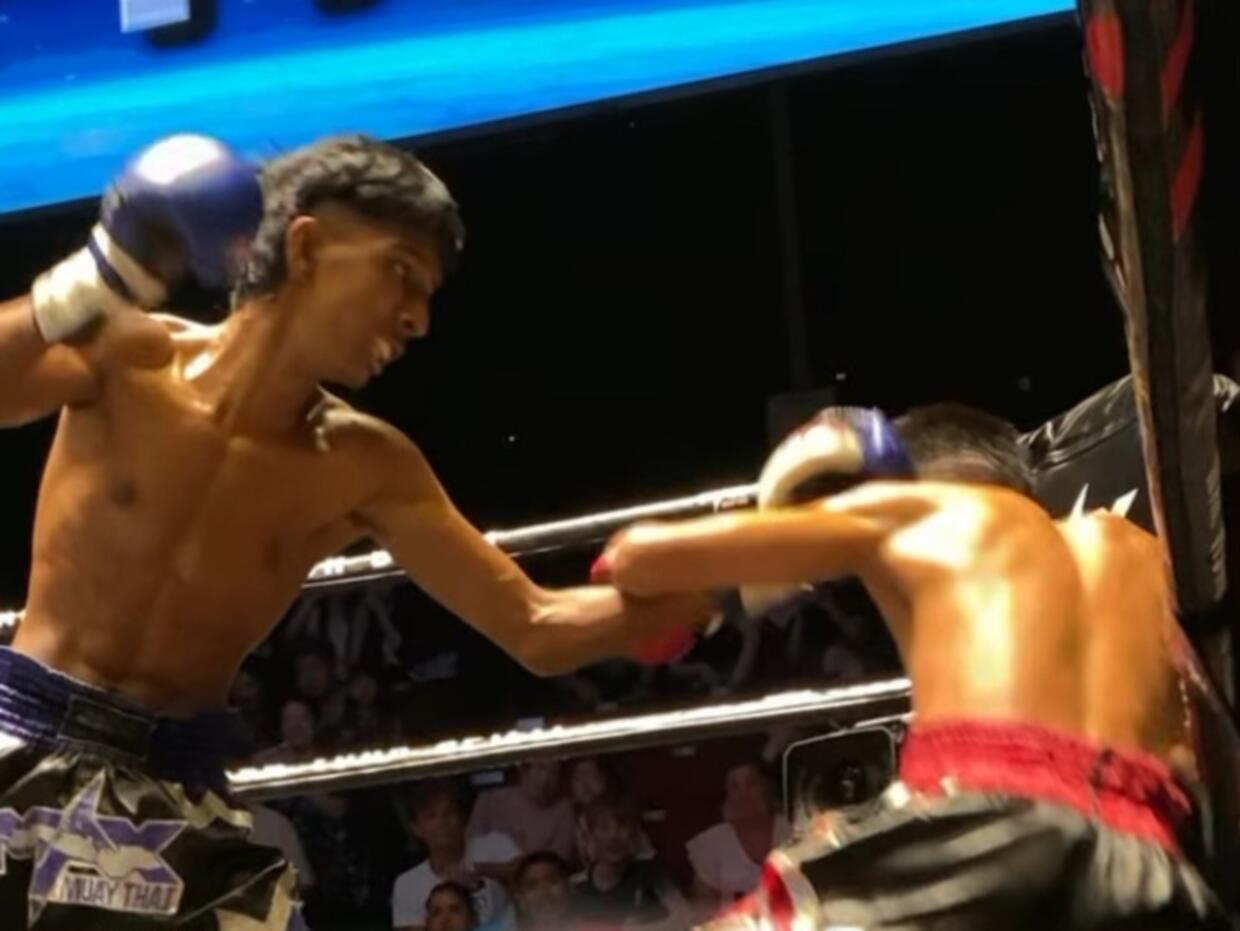Following is the full text of Prime Minister Najib Abdul Razak’s speech at the East-West Center, Honolulu, Hawaii.
Puongpun Sananikone;
Chairman of the East-West Center Board of Governors,
Charles E. Morrison;
East-West Center President,
Joey Manahan;
Hawaiian State Representative,
Fellow students of the East-West Center;
Ladies and gentlemen,
“E pluribus unum” – out of many, one. The creed that appears on this
nation’s Great Seal is a simple one but it describes, beyond the gift of any
philosopher or orator, the common spirit that for almost 250 years has United
your States and inspired your people.
For half a century the East-West Centre has applied the same principle to
relations between Asia and the United States, bringing us together to learn from
each other, work with each other and better understand our world.
It is vital work. There are now more than seven billion men, women and
children squeezed onto this crowded little planet, and with so many different
cultures in such close proximity we can only survive if we learn to live
alongside each other in peace and harmony, focussing on what we have in common,
rather than what divides us.
Hawaii has long been a very real example of how this can be achieved. It is
a cultural melting pot where people from wildly different backgrounds live, work
and socialise together. Go down to Aloha Stadium on Pro-Bowl Sunday and you
won’t see crowds of Europeans, Asians and native people, but an arena filled
with 50,000 Hawaiians.
The same is true of my country. Malaysia is home to Muslims, Christians,
Hindus, Buddhists and an almost countless array of smaller religious groups and
denominations. We speak many languages and have many religions, but for half a
century since independence we have been One Malaysia, striving together to make
our home the modern, progressive, successful nation it is today.
If Malaysia and Hawaii have shown that this can be achieved, the challenges
facing the international community in the 21st century show why similar
understanding and co-operation must be achieved on a global scale. Now, more
than ever, different nations have to come together to plot the way forward. The
global financial crisis, international terrorism, drug smuggling and people
trafficking are all problems that no one government can successfully tackle
alone.
But at the very moment when East and West can least afford to be divided,
small but vocal groups of extremists are seeking to drive a wedge between us. On
one side are the handful of misguided Muslims acting under the false assumption
that their faith justifies conflict and violence. On the other are those who
allow themselves to believe that all terrorists are Muslims, all Muslims are
terrorists, and the East cannot be a trusted partner of the West.
When Timothy McVeigh brought mass slaughter to the streets of Oklahoma City,
nobody suggested that all Christians were somehow responsible. To do so would
have rightly been seen as absurd, yet that is the situation the world’s 1.3
billion Muslims find themselves in today. When a great evil visited Oslo earlier
this year, so-called experts filled the airwaves to assert that the attack bore
all the hallmarks of Muslim extremists. We swiftly discovered that the awful
truth was very different, yet around the world politicians, journalists and
commentators remain committed to the idea that terrorism and Islam are two sides
of the same coin.
I have said this many times, but it bears repeating again and again and
again: Islam is a religion of peace. Islam abhors violence. And Islam has no
place, no respect and no love for those who sully its name to further their own,
extremist, ends. Islamic scholars have been very clear that those who commit
acts of violence are not true Muslims – their twisted ideology is not grounded
in any theology.
As a human being, as a Prime Minister and, above all, as a Muslim I outright
condemn any and all acts of terrorism, regardless of the religious doctrine of
perpetrator and victim. There is never – never – any justification for taking
innocent lives.
But extremism is not about good religions and bad religions, or good beliefs
and bad beliefs – it’s about good people and bad people. I am talking about
groups and individuals from every nation, every political school of thought,
people of every religion and no religion who use whatever means are at their
disposal to push forward their own ideas while hiding their ulterior motives
behind a “righteous” façade.
Think of the Christian who says he is acting on God’s behalf when he shoots
dead an abortion provider. Think of the militiaman who claims that plotting to
overthrow the federal government is his constitutional duty. Think of the
violent anarchists whose manifestos state they are justified in firebombing labs
where experiments are conducted on animals.
These are the bigots. These are the extremists. They take advantage of
freedom of expression to mislead and exploit the ignorant, the weak and the
poor.
Whatever they may say, they do not represent us. Yet for far too long a lack
of collective action on the part of the moderate majority has ceded the floor to
the extremist minority, allowing the discourse to be dominated not by sense and
reason but by those who shout the loudest.
Not anymore. It is time for us, the majority who are peace-loving and
moderate, to reclaim our rightful place in the centre. We cannot afford to stand
by and remain silent in the face of extremism and violence. We must ensure that
our voices are heard – not just the voices of moderate Muslims, but those of
moderate Christians, moderate Hindus, moderate Jews, moderate atheists.
If these voices are to become loud enough to drown out the extremists, they
need to be heard from every corner of the world. That is why, last year, I
called on the United Nations General Assembly to join me in forming a global
“Movement of the Moderates”.
I’m not alone in recognising the importance of tackling extremism in all its
forms, and my call has received widespread backing – just last month the
Commonwealth Heads of Government Meeting incorporated the concept in its final
communiqué, and Secretary of State (Hillary) Clinton has also been vocal in her
support.
With international support increasing we must make the most of this
momentum. So today I am delighted to announce that the inaugural International
Conference on the Global Movement of the Moderates will take place in Kuala
Lumpur from 17 to 19 January next year. It is my great honour to extend to all
of you an invitation to the event, which is being organised by the Malaysian
International Islamic University’s Alumni and will see the formal launch of the
Global Movement of the Moderates Foundation.
However, this drive for moderation will fail if we – as leaders of
governments, businesses, churches and universities – simply see it as an
academic exercise. We cannot afford to sit in ivory towers, hold discussions,
and produce dusty documents which assert that “something must be done”. We must
take real action, deliver real change. And we cannot do this if we ignore what
the majority are saying, because if you fail to understand what troubles working
men and women they become easy prey for extremists who are adept at offering
simple, yet dangerous, solutions. Above all, governments must lead by example.
For how can we expect moderation from others, if our own actions take us away
from the middle of the road?
That is why, when I became Prime Minister a little over two years ago, I
immediately set about transforming and reforming Malaysia, getting us into shape
for the economic, political and social challenges of the 21st century and
setting us on a path of economic growth that will benefit all Malaysians.
We have liberalised industries, cut red tape, made it easier for foreign
companies to invest and made it easier for Malaysian companies to grow. I call
it the Economic Transformation Programme, and it is already delivering real
results – according to the World Economic Forum Malaysia is now Asia’s fifth
most-competitive nation and the 21st most competitive worldwide. We are ranked
ahead of Germany, Japan and Switzerland in the World Bank’s “Doing Business”
index. Plans for a minimum wage are making their way through Parliament, but per
capita incomes are already rising rapidly and are on track to reach US$15,000 by
2020. Almost 400,000 jobs have been created, with a further three million
expected over the next decade. Hard-core poverty has been virtually eliminated.
I have also started the process to deliver lasting reforms to the way state
institutions work through the Government Transformation Programme. International
experts report that levels of corruption are falling rapidly. Crime is down,
employment is up. More and more people are using public transport, reducing both
congestion and pollution.
Neither programme was a top-down exercise in central planning. From the
start we put the people of Malaysia first, listening to them to find out what
their priorities were and linking them up with experts to determine the best
route forward.
Underpinning these changes is an unprecedented programme of social and
political reform that has got underway in the past six months. Out-dated
security laws such as the colonial-era Internal Security Act are being replaced
with modern anti-terrorism legislation modelled on international best practice.
The requirement for newspapers to renew publishing licences every year is being
scrapped. Censorship laws are being reviewed so we can protect our traditional
values without compromising freedom of speech or stifling political debate. And
I have launched a bipartisan panel to examine calls for electoral reform and see
what steps need to be taken to ensure that every Malaysian’s vote counts.
I am charting a moderate course for Malaysia, steering us away from the
dangerous extremes – social, political and economic – that could cause the
nation lasting damage. Together these reforms are a blueprint for national
transformation, one that is already being followed by other countries, and one
that I would be delighted to share with the leaders of the new democracies in
Libya, Egypt, Tunisia and beyond.
Such mutual learning and understanding is what the East-West Center has
always been about, and it’s also what APEC can really bring to the Asia-Pacific
region in these difficult times.
When people say “Asia-Pacific” they often fall into the trap of thinking it
only covers a handful of relatively small nations in South-East Asia. In fact
our region spans four continents and encompasses more than two dozen countries.
Almost three billion people live in nations whose shores are lapped by the
waters of the Pacific and the South China Sea. APEC itself has 21 members and
this week it brings together delegates from as far afield as Russia and Chile,
New Zealand and Canada.
Asia-Pacific is a region of extremes and contrasts. The frozen wastes of
Alaska experience some of the coldest temperatures on earth, while the blazing
deserts of Australia are home to some of the hottest. The bustling streets of
Tokyo are among the most densely populated places on earth, whilst the vast
expanses of the Atacama are amongst the most deserted.
What we have in common is the mighty Pacific, so it is apt that APEC is
meeting here in Hawaii, right in the middle of that ocean. For centuries these
islands were a vital stopping-off point for sailors navigating between East and
West. Today, with the presence of the APEC leaders meeting, they form a symbolic
bridge between two sides of the world that are very different, yet have so much
to share.
When the leaders of APEC last gathered, it was agreed that we could only
meet the challenges of the 21st century if we “forge a partnership of common
interests to produce strong, balanced and sustainable growth.” Looking at the
perils facing the global economy today, that partnership appears more important
than ever.
With around 60 per cent of global GDP in the hands of APEC nations, we have
an enormous responsibility for supporting the wider world, a responsibility that
no one nation could seek to carry alone – it can only be borne if we stand
shoulder to shoulder. We must use the APEC platform to build meaningful
co-operation and engagement that will help not just our own people but also
those of Africa, Europe and the rest of Asia. We cannot, and must not, let them
down.
Ladies and gentlemen,
For more than two centuries this country has been driven by ambition, hope
and a belief that the lot of every American, from the humblest farmer to the
grandest leader, can, and must, be improved. It is this yearning for
self-improvement, introduced by the founding fathers and carried forward by
successive generations, that has made America a land where anything is possible,
a place where a Hawaiian boy born to a mother from Kansas and a father from
Kenya cannot merely harbour dreams of growing up to be president, but can
actually go out and make it happen.
But as we move into the second decade of the 21st century, this desire and
ambition is no longer confined to the Unites States. Our world seems in a state
of permanent flux, as if every new dawn brings with it a radical change that
challenges seemingly unshakable institutions. The Arab Spring swept across North
Africa and the Middle East, bringing an end to decades-old dictatorships and
establishing a wave of new democracies. The Eurozone economies are facing a dire
threat to what was one of the world’s strongest currencies. And the strategic
focus of the international community is shifting away from the North Atlantic
and towards the East.
Nearly half of the world’s population are below the age of 25 and the
majority of them live in Africa and Asia – indeed, the world’s population
breached seven billion on the 31st of October.
These young people represent the first truly global generation and they will
not be satisfied with the ways of the past. Separated by oceans but connected by
Twitter and Facebook, young people from every corner of the earth have seen what
the world has to offer and are demanding that we create a global society where,
as in America, anyone can not just dare to dream, but dare to make that dream a
reality.
If we are to leave behind a peaceful, moderate and harmonious world in which
these ambitions can be achieved, it is not enough to reform just our politics
and our economies – we must reform the very way we think. I’m not interested in
the divisive old philosophy that pits East against West in perpetual
competition, bringing nothing but conflict to the world.
Ultimately, east and west are mere concepts on a map, created by man – there
is no great dividing wall that runs around the globe, keeping our societies as
separate entities. And if we can create that division, so can we remove it. Now
is the time to build a new, progressive vision of East and West standing side by
side, learning from each other and facing the challenges of the modern world
with a united front. Because together we are stronger, and out of many, we are
one.
Thank you.
Source: Bernama












